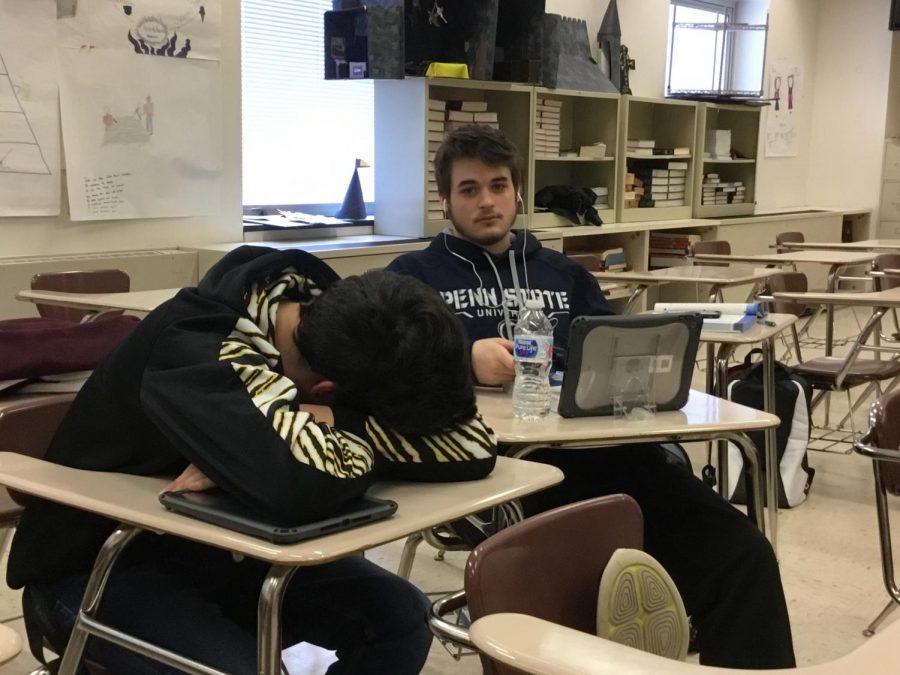NEXT BIG VIRUS SWEEPING AMERICAN SCHOOLS
March 19, 2018
As flu season begins to wind down the next big epidemic is getting ready to kick in… and this one doesn’t have a vaccine.
Senioritis is a serious affliction estimated to affect 25% of students in high schools across the nation. While students who are 17-18 years of age are the most susceptible, it can kick in as early as 16 and occasionally can extend to age 21 in especially severe cases that are rightfully dubbed “Super Seniors.”
Upon infection, victims report a decrease in motivation and increase in laziness, with an accompanied disinterest in their schoolwork and report card. Other symptoms include dropping any and all (perceived) unnecessary classes, such as languages, or switching from difficult classes like calculus, to “easier” classes, such as consumer math, that still fulfill graduation requirements.
When infected with the Senioritis virus motivation cells take a jump off the deep end and undergo apoptosis, or as Mr. Hachtman describes it, programmed cell suicide. The infected cell debris is then spread to the surrounding motivation cells.
Initially, the body also sends out antibodies, such as common sense and work ethic, to fight the virus, but these are almost immediately hijacked by the virus and converted into procrastination cells and used as hosts to continue reproduction.
Part of the reason Senioritis is so difficult to treat is that the procrastination cells release endorphins and victims actually become addicted to procrastinating. As the infection spreads throughout, the body’s ability to do work drops severely
Senioritis is spread through these college acceptance letters and All-Pro Study Halls. When students know they are accepted somewhere or have extra time in their schedule procrastination begins to set in.
The student immune system is worn down over the four years of hard work they put in during high school. As senior year rolls around, their motivation and drive, the first line of defense against procrastination, is severely weakened. When quickly followed by the decreased sense of urgency provided by college acceptance letters, the combination becomes deadly (to GPA).
There have been no known fatal cases, but to students being forced to come back for another year of high school, they might as well be.
Once infected there is little victims can do except hope all graduation requirements are complete and hang on until graduation, the only known foolproof cure for Senioritis.


Sophia Rossetti • Mar 28, 2018 at 10:53 am
This is a good article, very true too and relatable. I agree with Emily though, there’s a little bit of some clickbait going on, but I guess that’s okay it was a good effort. I look forward towards your next publication. All the best xoxo
Emily Knitter • Mar 26, 2018 at 10:56 am
Click Bait
Justin • Mar 20, 2018 at 8:59 am
Click bait at its finest.
Allyson Heard • Mar 20, 2018 at 12:54 pm
Thank you.
Emily Knitter • Mar 27, 2018 at 6:23 am
CLICK. BAIT 101